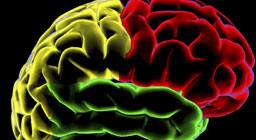Washington: Researchers have identified the nature of brain activity offers new insights into how we store our recollections.
Study's senior author Lila Davachi, an associate professor in NYU's Department of Psychology and Center for Neural Science, and her co-author, Youssef Ezzyat, an NYU doctoral student, sought to shed light on this dynamic by studying the brain's hippocampus-a region known to play a significant role in memory.
In this experiment, the researchers had participants look at a series of pictures while monitoring brain activity using functional magnetic resonance imaging (fMRI). The participants viewed objects and faces that were separated in time; each stimulus was also paired with a picture of a scene.
For every presentation, the participants were asked to imagine a scenario in which either the object or the face played a role in the scene they just viewed-the process was designed to create, or encode, a series of memories in the participants.
Later, after scanning, the participants performed a retrieval test in which they were presented with two stimuli (i.e., object and face) from the preceding phase and asked to indicate how far apart in time the two items were when they were encoded. Participants were given the following four response options: very close, close, far, and very far.
Their results showed a relationship between hippocampal activity and how close or far in time the participants placed their memories. When hippocampal activity was more stable across time, memories were remembered as having occurred closer together. By contrast, when hippocampal stability was diminished, participants were more likely to recall the memories as having occurred further apart in time.
The findings have been published in the journal Neuron.
















